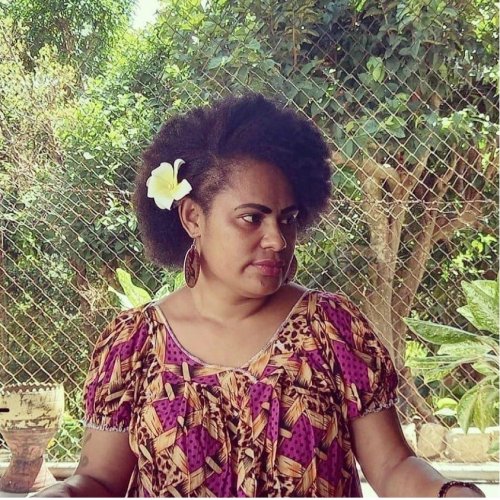Best Lawsuits & Disputes Lawyers in Papua New Guinea
Share your needs with us, get contacted by law firms.
Free. Takes 2 min.
Or refine your search by selecting a city:
List of the best lawyers in Papua New Guinea
About Lawsuits & Disputes Law in Papua New Guinea
Lawsuits and disputes in Papua New Guinea (PNG) are primarily governed by a combination of common law principles and local legislation. The legal system in PNG integrates the indigenous customary law with formal legal structures. Lawsuits typically encompass a broad range of conflicts, including civil disputes, commercial litigations, land disputes, and matters of criminal litigation. The National Court and District Courts are the primary venues for addressing and resolving such disputes. Legal processes in PNG are influenced by the integration of custom, statute, and common law, fostering a unique and multifaceted legal landscape.
Why You May Need a Lawyer
Engaging a lawyer can be crucial in several situations where you might encounter legal disputes in Papua New Guinea:
- You are involved in a business dispute or contract disagreement.
- You face a property or land issue, possibly involving title disputes or customary land litigation.
- You need legal representation in civil or criminal matters.
- You require assistance with settling a family dispute or inheritance issue.
- You are dealing with regulatory issues or government compliance matters.
- You are a party to defamation, personal injury, or tort claims.
Legal professionals can provide guidance, represent your interests in court, negotiate settlements, and ensure your rights are protected under the law.
Local Laws Overview
Understanding local laws is critical for effectively navigating lawsuits and disputes in PNG. Some key aspects of the legal framework include:
- Land Law: Land ownership is a complex topic due to the interplay between formal legal systems and customary land rights, which constitute over 90% of land ownership in PNG.
- Contract Law: Contractual agreements must adhere to general principles of contract law, though some specific regulations may apply to particular industries.
- Tort Law: Legal concepts such as negligence, defamation, and personal injury claims are actionable under PNG’s legal system, with unique considerations for customary practices.
- Criminal Law: The Criminal Code Act forms the basis of prosecuting offenses, with certain customary defenses available to accused persons.
- Commercial Law: Corporate regulations are grounded in the Companies Act, affecting the formation and operations of business entities within the country.
Frequently Asked Questions
What are the main types of legal disputes in Papua New Guinea?
Main types include land disputes, contractual disagreements, commercial litigation, family law matters, and tort claims.
How are customary land disputes resolved?
These disputes are commonly addressed through village courts or by mediation involving local leaders and the Land Disputes Settlement Act.
Can customary law influence legal proceedings?
Yes, customary law is recognized in PNG and can influence decisions, especially in personal and land-related disputes.
What is the role of the Village Court?
The Village Court system is designed to resolve minor local disputes and apply customary law to maintain peace within communities.
Do I need a lawyer for a small claim?
While legal representation is not compulsory, a lawyer can help ensure the best possible outcome for your claim.
How long does a civil case typically take?
The duration can vary widely, depending on the complexity of the case and court schedules, ranging from months to years.
What should I do if I receive a court summons?
It’s crucial to consult with a lawyer quickly and prepare your response or defense with professional legal assistance.
What is the process for appealing a court decision?
Appeals must be made to a higher court, such as from the District Court to the National Court, generally within a specified timeframe.
What are alternative dispute resolution mechanisms in PNG?
Mediation and arbitration are available for parties seeking to resolve disputes outside the traditional court system.
How are international disputes handled?
International disputes may involve diplomatic channels, international arbitration, and considerations of international law where applicable.
Additional Resources
For anyone seeking further assistance or information regarding lawsuits and disputes in PNG, the following resources may be helpful:
- Papua New Guinea Law Society
- Office of the Public Solicitor
- Land Disputes Settlement Act documentation
- Office of the Ombudsman Commission
- PNG Department of Justice and Attorney General
Next Steps
If you find yourself needing legal assistance in the area of lawsuits and disputes, consider the following actions:
- Consult with a legal professional who specializes in your area of concern.
- Gather and organize all relevant documentation and evidence related to your case.
- Understand your rights and obligations under the applicable laws.
- Explore alternative dispute resolution options if suitable.
- Prepare a plan and strategy with your legal advisor to address the dispute.
Taking timely and informed action with the support of a legal expert can significantly influence the resolution of your legal matters.
Lawzana helps you find the best lawyers and law firms in Papua New Guinea through a curated and pre-screened list of qualified legal professionals. Our platform offers rankings and detailed profiles of attorneys and law firms, allowing you to compare based on practice areas, including Lawsuits & Disputes, experience, and client feedback.
Each profile includes a description of the firm's areas of practice, client reviews, team members and partners, year of establishment, spoken languages, office locations, contact information, social media presence, and any published articles or resources. Most firms on our platform speak English and are experienced in both local and international legal matters.
Get a quote from top-rated law firms in Papua New Guinea — quickly, securely, and without unnecessary hassle.
Disclaimer:
The information provided on this page is for general informational purposes only and does not constitute legal advice. While we strive to ensure the accuracy and relevance of the content, legal information may change over time, and interpretations of the law can vary. You should always consult with a qualified legal professional for advice specific to your situation.
We disclaim all liability for actions taken or not taken based on the content of this page. If you believe any information is incorrect or outdated, please contact us, and we will review and update it where appropriate.
Browse lawsuits & disputes law firms by service in Papua New Guinea
Papua New Guinea Attorneys in related practice areas.
Browse lawsuits & disputes law firms by city in Papua New Guinea
Refine your search by selecting a city.















